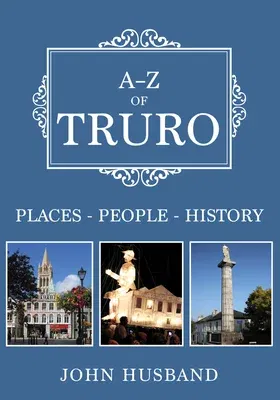Situated between the rivers Allen and Kenwyn, Truro is an ancient town
but a young city. From becoming Cornwall's first chartered town in 1130
to the laying of the foundation stone for the county's only cathedral in
1880, it has gone from a medieval market town to a thriving port and, as
a stannary town, grew rich on the proceeds of Cornwall's mines. Fine
Georgian buildings changed the look of Truro from a provincial market
town to a smaller version of Bath. Its medieval street plan contains
many narrow passageways or 'opes', and many of its interesting buildings
still remain despite much modern development as befits Cornwall's legal,
administrative and commercial centre. When its shipping trade was
eventually stolen by Falmouth, the river silted up and now only small
boats can reach the Town Quay at high tide. By the twentieth century two
developments changed the look of Truro forever. The arrival of the
railway brought the massive sixteen-arch viaduct, which stretches across
the panorama of the city from east to west. In front of it rise the
three spires of the country's first Anglican cathedral to be built since
St Paul's. In A-Z of Truro, author John Husband embarks on an engaging
alphabetical journey through the city's history. He visits the places,
buildings and streets that are significant and intriguing, and discovers
the stories behind them. Along the way the author also introduces the
reader to some of Truro's famous sons and daughters. From the explorer
Richard Lander and his brother John (the first Europeans to follow the
course of the River Niger) to the origins of the amusingly named Squeeze
Guts Alley, and Walsingham Place to the Festival of Lights, this is a
wonderfully illustrated insight into the history of Cornwall's county
town.

